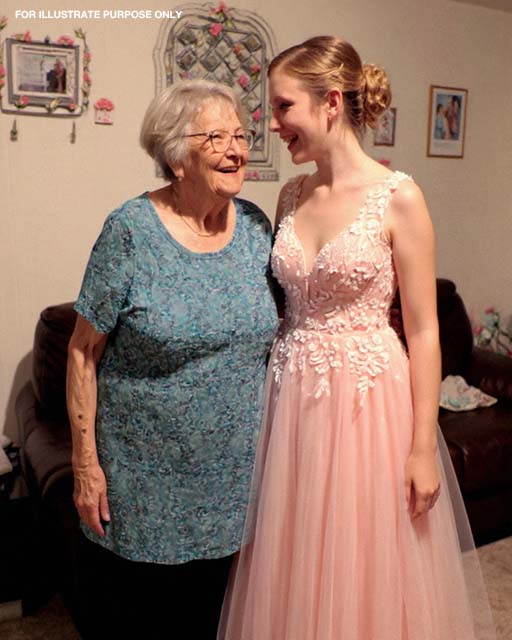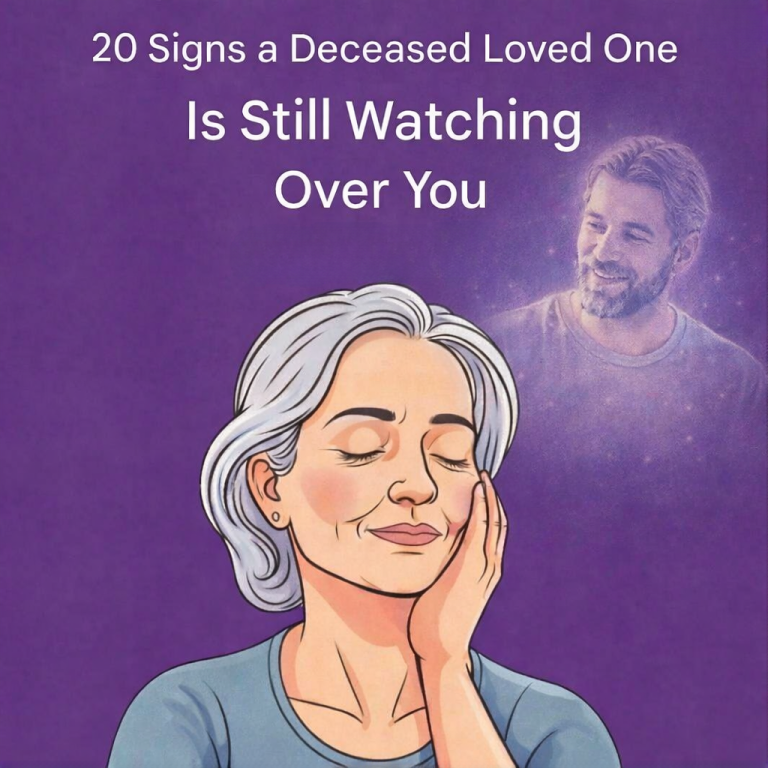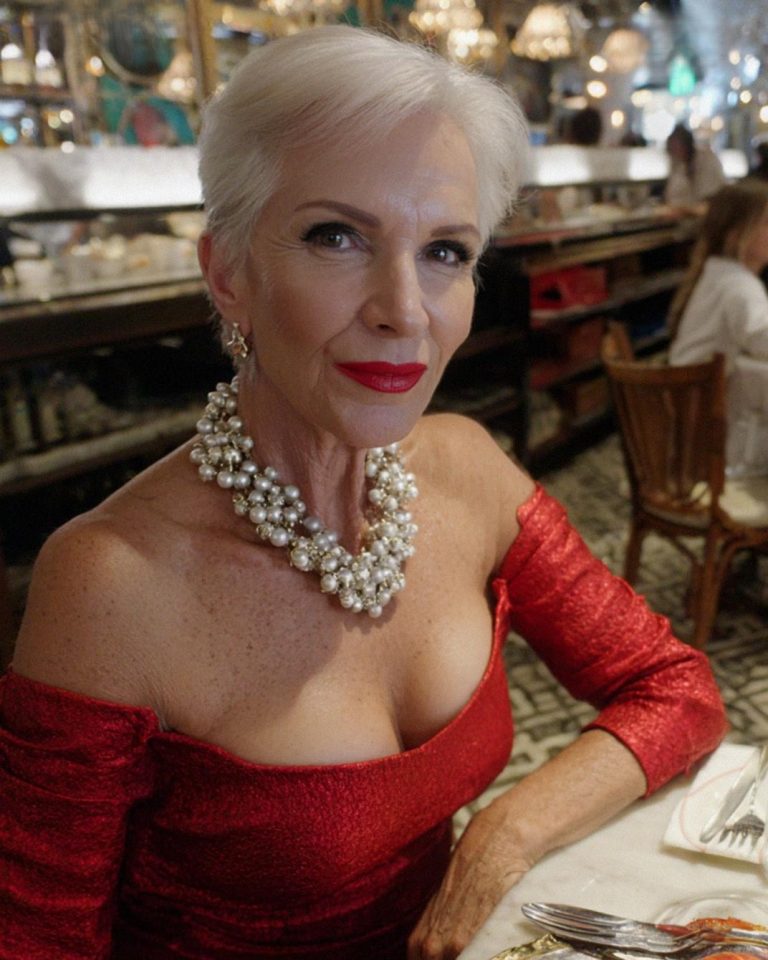
After raising her granddaughter alone following her son’s death, Catherine believed the worst days were behind them. But she realized some people could be far crueler than she ever imagined.
Sixteen years ago, at 56, I was still bouncing between tiny rental apartments, scraping by with whatever work I could find. My son, Adrian, had already achieved what I never could.
At twenty-nine, he bought a modest one-story house for his wife, Vanessa, and their little girl, Lily. He was a construction worker, his hands calloused and strong, but his dreams were bigger than the concrete and timber he shaped every day.
“Mom,” he said over coffee in my cramped kitchen, his eyes shining with pride, “I want to add a few rooms, maybe build a porch, even put up a swing set for Lily. And I’ll make you a room over the garage, too.”
I beamed. The house was modest—beige with brown shutters and a small garden—but it was theirs. A foundation for a life they could call their own. And because Adrian was practical, he’d drawn up a simple will. If anything were to happen to him, the house would go to Lily.
But fate has a cruel sense of timing. Before any of his dreams could materialize, a construction accident took him from us. Lily was only two years old.
At the funeral, I held her tiny hand, feeling the fragile weight of her grief and mine intertwined. Vanessa greeted the mourners with a cold, detached smile that cut through the warm, sorrowful air like a blade.
Back at the house, I found her packing her suitcase. She was only twenty-seven.
“Take care of her,” she said, tossing me the house keys without meeting my eyes.
Outside, I watched her get into a sleek car, a man smiling beside her, as the engine purred to life. They drove away, leaving me and Lily standing in the driveway, the weight of Adrian’s absence pressing down like a storm cloud.
That was the last time I saw her.
I moved into Adrian’s house with Lily and worked every job I could. I cleaned homes until my knees ached, babysat neighbors’ children, and waited tables at the local diner until my feet swelled. Time passed relentlessly. I aged into my seventies, my back stiff every morning, my hands rough from decades of labor, but I never lost my energy for Lily.
And Lily—oh, Lily—grew into a remarkable young woman. Thoughtful, kind, and full of quiet confidence. She never complained about thrifted clothes or hand-me-downs. Somehow, she made them look modern and stylish. She always told me she loved me, and I knew she meant it.
High school girls dream of one night above all: prom.
Weeks before the big day, I asked Lily if she had plans. She shook her head.
“Grandma… don’t worry. We can’t afford it anyway. I looked at Goodwill… nothing will work.”
She tried to sound casual, but I saw the disappointment in her eyes. This girl deserved a night to shine, to feel special.
The next day, I found a beautiful soft pink satin fabric at a local vintage shop. It wasn’t expensive, but it had a delicate shimmer—enough to make a girl feel like a princess. That night, after my dinner shift, I dragged out my old sewing machine and began working on Lily’s gown.
She protested softly, worried I was overextending myself, but I wouldn’t hear it. Her happiness was worth every ache and cramp. I poured my love into each seam, every stitch a promise, every fold of fabric a hope that her night would be magical.
The night before prom, Lily tried on the finished dress in the narrow hallway. The fabric caught the light perfectly, shimmering gently as she spun in front of the mirror. Tears filled her eyes.
“It’s the most beautiful dress I’ve ever seen,” she whispered.
Then, a sharp knock rattled the front door.
I opened it and froze. Vanessa stood there, smiling brightly, flawless and poised. Time had treated her well; at forty-three, she looked more polished than ever. Her designer heels clicked against the porch as she swept inside uninvited, a glossy garment bag slung over her shoulder.
“My baby girl!” she exclaimed, pulling Lily into an exuberant hug.
Lily stiffened. I stepped aside, confused and uneasy. This was the woman who had abandoned her, who had vanished without a single word for sixteen years. And now she expected applause for showing up?
With theatrical flair, Vanessa presented the garment bag. “Here you go!” she said. Unzipping it, she revealed a sparkling silver gown, likely costing more than what I earned in three months.
“I brought you a special gift,” Vanessa purred, glancing from Lily to the humble pink dress she was wearing. “Prom’s tomorrow, right? Thought you could use a proper dress.”
“Yes… it’s tomorrow,” Lily replied softly, uncertainty in her voice.
Vanessa’s eyes swept over our home, dismissive. “You can’t wear that, sweetheart. Everyone will laugh. Take this—this is a real dress for prom.”
For a fleeting moment, I almost believed she had returned to reconnect. But then, an envelope slipped from her purse, landing on the worn carpet. Lily bent to pick it up. The bold letters on the front made my stomach knot: Lily.
“What’s this?” she asked. Vanessa’s smile faltered.
“Oh, just something for you to read later,” Vanessa said quickly, trying to snatch it back.
But Lily stepped away, tearing open the envelope before anyone could stop her. She unfolded the papers, her brows furrowing as she scanned the words. Her lips parted, her face paling.
“Grandma…” she whispered. “She… she’s asking me to sign over the house to her.”
My knees nearly buckled. I grabbed the papers, skimming the legal jargon. Vanessa hadn’t come back for her daughter. She had come back for the house—Adrian’s house. My son’s house. The one he had left to Lily.
Vanessa’s expression hardened. The mask of charm slipped. “I gave up my rights back then because I was young and grieving. But this house was my husband’s. I have a right to it. And frankly, Lily, don’t you think your grandmother’s too old to keep up with it anymore? You should come live with me. We can sell this place and split the money.”
Lily’s eyes filled with tears—not of confusion, but of anger. She straightened her shoulders, holding herself tall in the dress I had sewn with my aching hands.
“This house isn’t yours,” she said firmly. “It never was. Dad left it to me, and Grandma raised me when you ran away. She gave me everything. You gave me nothing.”
Vanessa scoffed. “You’re a child—you don’t understand the value of things.”
But Lily didn’t flinch. “I understand the value of love. And you can’t buy that with your silver dress.”
Silence hung in the air like a blade. Vanessa’s polished composure cracked, her face twisting with rage. She grabbed the silver gown and stormed out, slamming the door so hard the mirror in the hallway rattled.
Lily collapsed into my arms, trembling. “I’m not letting her take anything from us, Grandma. Not you. Not this house. Not the life we built.”
I kissed her hair, whispering through tears, “And she never will.”
Lily turned the envelope in her hands, her brows knitting. Vanessa reached out too quickly.
“That’s private. Just… give it to me.”
But Lily shook her head and opened it. Inside was a legal letter, neatly folded, stamped by an attorney.
Her voice cracked as she read aloud:
“It states… you want me to sign over the house to you?”
The room froze.
Vanessa smoothed her hair, her smile brittle but determined.
“Well, technically, the house was Adrian’s. He left it to you, but sweetheart, you don’t understand real life. You’re only sixteen. This house is wasted on you. I could sell it, make real money, and set you up with better opportunities. That’s why I came back—for you.”
Lily’s eyes hardened. “For me? Or for yourself?”
I gripped the back of the chair, my legs trembling with fury. “You abandoned her with nothing but grief in her crib. You never once sent a letter, a call, a penny. And now you dare walk in here demanding the one thing Adrian left for his daughter?”
Vanessa scoffed. “Oh, please. You think raising her makes you some kind of saint? You’ve kept her small, living like peasants in this house. She deserves better than thrift stores and homemade dresses. With me, she can have a future.”
Lily stepped forward, holding the pink satin skirt gently in her hands. Her voice was quiet but steady.
“This dress isn’t just fabric. It’s love. Every stitch is proof Grandma gave me everything you never did. She was there for birthdays, school plays, every scraped knee. You weren’t. And I don’t need you now.”
Vanessa’s mouth twisted. “You’re being manipulated. You don’t understand money, property, or security.”
But Lily looked her straight in the eye. “No, Mom. You don’t understand family.”
The silence that followed was suffocating. Finally, I stepped between them.
“Get out, Vanessa. This house isn’t yours. And this girl—this incredible young woman—will never be your pawn.”
For a moment, her polished mask cracked. Then she spun on her heel, scooping up the glittering gown and slamming the door behind her.
Lily turned to me, tears brimming, but she smiled. “Grandma… we’re going to be okay.”
And the next night, she walked into prom in her pink satin gown, glowing brighter than any jewel money could buy.
When she twirled under the soft lights, I saw Adrian in her smile, in her resilience, in her refusal to let betrayal define her.
And I knew then: no demand, no threat, no bitterness could ever take away what we had built together.
Family wasn’t about blood—it was about who stayed.



